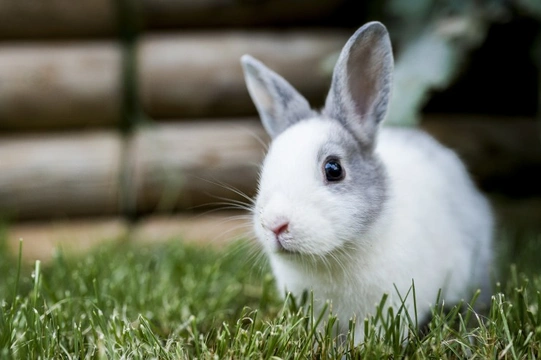
New vaccine available for rabbit haemorrhagic disease virus (RHDV) strain 2 (VHD2)
Rabbit haemorrhagic disease virus (RHDV) also sometimes known as rabbit viral haemorrhagic disease (VHD) is a very serious viral health condition that can affect rabbits, including both wild and domestic species in the UK. Rabbit haemorrhagic disease virus is very contagious amongst rabbits, and it is a strain of calicivirus, which can make affected rabbits very ill and that has a high mortality rate too.
The onset of rabbit haemorrhagic disease is often very sudden, and affected animals sometimes die of the condition very quickly, often with few or no symptoms present first. It is a very fast-acting virus, with some rabbits succumbing to their illness within just two days of their first exposure to it, which makes it of great concern to the owners of pet rabbits in the UK.
There has been a vaccine available in the UK for RHDV for some years now, which offers effective protection against the condition to rabbits that have been vaccinated; however, this vaccine (known as VHD1) is only effective against one strain of the virus, being the one that has historically been the most prevalent in the UK.
However, over the course of the last couple of years, vets have identified a new strain of rabbit haemorrhagic disease virus in the UK, which is not covered against under vaccination for VHD1. As a result of this, a new vaccine for rabbits in the UK became available in 2018, offering protection against this second strain, which is known as VHD2.
In this article we will explain a little more about haemorrhagic disease virus transmission in rabbits, the two different strains of the virus and their vaccinations, and what you should do to ensure that you provide your own pet rabbit with the best possible protection against disease. Read on to learn more.
How is rabbit haemorrhagic disease virus spread among rabbits?
Rabbit haemorrhagic disease virus is a very contagious condition, which can spread quickly amongst rabbits that live together or spend time together in close quarters, and that can also spread back and forth between domestic or pet rabbits and wild rabbit populations too.
We know that the condition can be spread by direct contact with other infected rabbits (even if those rabbits appear to be fine and healthy at the time) as well as by contact with stools or urine from affected rabbits, which can in turn be spread further if present on food and water bowls or inadvertently transferred by contact with rabbit handlers.
Researchers also suspect that insects and bugs can spread rabbit haemorrhagic disease virus too, although we don’t know this for sure. The virus that causes the condition is very hardy too, and can live in the environment without a host for well over six months.
Whilst rabbit owners should take steps to avoid cross contamination between different rabbits, there is only a limited amount that can be done, and no sure-fire way to ensure that your own rabbits are not exposed to the condition – which is why vaccination is so important.
How does vaccination protect rabbits against viral haemorrhagic disease?
Vaccination can prevent rabbits from catching the strain of viral haemorrhagic disease that they have been immunised against, and in the small number of rabbits who do develop a form of the condition that they have been vaccinated against, the condition is less mild in severity as a general rule.
Vaccination is designed to trigger the body’s immune response to a threat when no true threat is present, so that the rabbit’s body builds up antibodies against the specific threat in question and repels it in the future. It is a way of using a totally safe artificial or deactivated variant of the virus itself to trick the body’s immune system into responding, so that if they do come into contact with the virus in question later on, their bodies automatically react to negate the threat before it makes the rabbit ill.
Does my rabbit’s current vaccine protect them against viral haemorrhagic disease?
Most pet rabbits in the UK are vaccinated against rabbit haemorrhagic disease (strain 1) as part of their annual vaccination schedule, and for many years, this was the only type of VHD that was recognised in the UK.
However, there is now a second strain of the virus within the UK – strain 2 – which the vaccination for the strain 1 variant does not protect against.
If your rabbit has only had the strain 1 virus vaccine (your vet will be able to confirm this for you) they will be protected against strain 1, but not strain 2.
To offer your rabbit complete protection against both strains of rabbit haemorrhagic disease, they need to be vaccinated against both.
How to get your rabbit vaccinated against VHD2 in the UK
Give the vet who cares for your rabbit a call to check whether your rabbit is vaccinated against only strain 1, or strain 2 as well.
As the vaccine for strain 2 only became widely available in the UK during 2018, many rabbits won’t be covered against it – so unless your vet offered this vaccine at the time of your pet’s last boosters or if they have contacted you since then offering the vaccine and you had your rabbit protected then, your pet is probably not protected against strain 2.
If you do find that this is the case, let your vet know that you’d like to arrange for your rabbit to have the VHD2 vaccine too, and book in for an appointment.



